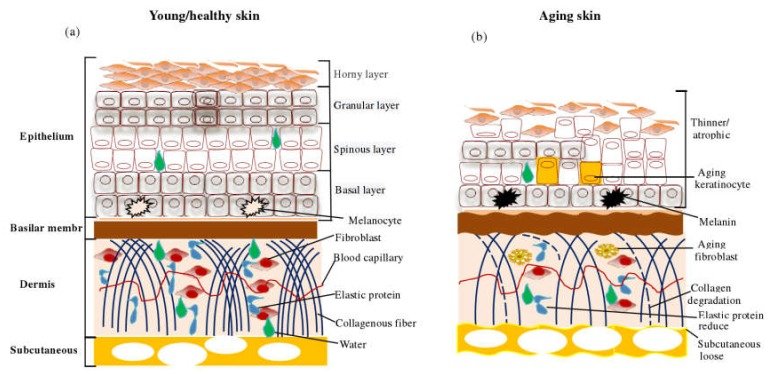
Unlocking the Fountain of Youth in Your Kitchen: Have you ever wondered if the key to youthful skin is hidden in your next meal? It turns out that what you eat plays a crucial role in maintaining healthy skin and delaying the aging process. Skin aging is a complex process influenced by both internal and external factors, and it can be categorized into chronological aging and photo-aging. From the molecular mechanisms of skin aging to the impact of nutritional levels and eating habits, there is a fascinating connection between diet and skin health. In this article, we will explore the science behind skin aging and nutrition, discover the vital vitamins and minerals for ageless skin, discuss the effects of different types of fats, delve into the benefits of superfoods, and understand the underrated role of hydration. Additionally, we will uncover the sugar-skin axis and provide guidelines to customize an anti-aging diet according to individual needs. So get ready to embrace the power of your plate and your palette, as we unravel the complex process of skin aging and unveil the secrets to maintaining youthful and radiant skin.
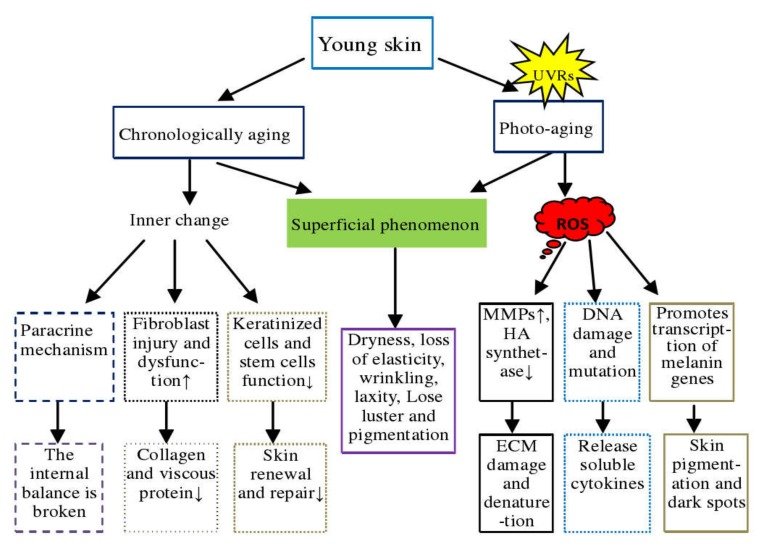
The Impact of Diet on Skin Aging: Unveiling the Complex Process
Introduction: Unlocking the Fountain of Youth in Your Kitchen
Imagine a world where the secret to maintaining youthful, radiant skin is as close as your kitchen. What if the foods you consume on a daily basis could significantly impact the aging process of your skin? It may sound too good to be true, but the truth is that what we eat plays a crucial role in the health and vitality of our skin. In this article, we will dive into the science behind the impact of diet on skin aging and explore the key nutrients, superfoods, and hydration strategies that can unlock the fountain of youth within you.
The Science of Skin Aging and Nutrition
To understand the link between diet and skin aging, we must first delve into the intricate process of how our skin ages. Skin aging encompasses both chronological aging, which occurs naturally over time, and photo-aging, which is caused by external factors such as UV radiation. The skin is made up of three layers—the epidermis, dermis, and subcutaneous tissue—and as we age, various changes occur within these layers.
Common signs of skin aging include dryness, dullness, lack of elasticity, and the formation of wrinkles. However, the molecular mechanisms that drive skin aging are far more complex. Oxidative stress, DNA damage, telomere shortening, and inflammation all play significant roles in the aging process.
Nutrition plays a critical role in combating these mechanisms and promoting healthy skin. By providing our bodies with the right nutrients, we can protect our skin from free radicals, stimulate collagen production, and reduce inflammation. The key is to incorporate a variety of vitamins, minerals, and antioxidants into our daily diet.
Vital Vitamins and Minerals for Ageless Skin
Certain vitamins and minerals are particularly beneficial for maintaining youthful skin. Vitamin C, known for its antioxidant properties, helps to protect the skin from oxidative stress and stimulates collagen synthesis. It can be found in citrus fruits, strawberries, bell peppers, and leafy green vegetables.
Vitamin E is another powerful antioxidant that can help protect the skin from free radicals. It also aids in reducing inflammation and improving skin hydration. Good sources of vitamin E include nuts, seeds, vegetable oils, and avocados.
Vitamin A plays a crucial role in skin cell regeneration and can promote a more youthful appearance. It can be found in foods such as sweet potatoes, carrots, spinach, and eggs.
The B-complex vitamins, including Biotin and Niacinamide, are also important for maintaining healthy skin. They assist in improving skin barrier function and reducing inflammation. Whole grains, nuts, legumes, and meat are all excellent sources of B vitamins.
In addition to vitamins, minerals like Zinc and Selenium are essential for skin health. Zinc helps in wound healing and has anti-inflammatory properties, while Selenium protects the skin from sun damage. Foods such as oysters, beef, pumpkin seeds, and Brazil nuts are rich in these minerals.
By incorporating these vitamins and minerals into your diet, you can nourish your skin from the inside out and promote a more youthful complexion.

Fats: The Good, The Bad, and The Wrinkled
When it comes to fats, not all are created equal. Some fats can actually benefit your skin, while others can have detrimental effects. Omega-3 fatty acids, found in fatty fish like salmon and sardines, as well as chia seeds and walnuts, are incredibly beneficial for maintaining skin health. They have anti-inflammatory properties and help to keep the skin hydrated and supple.
On the other hand, trans fats, which are commonly found in processed foods, can promote inflammation and accelerate skin aging. It’s best to limit your intake of trans fats and opt for healthier fats instead.
Choosing the right fats is crucial for maintaining youthful and healthy skin. Embrace omega-3 fatty acids while avoiding trans fats to promote skin elasticity and minimize the formation of wrinkles.
Superfoods for the Skin: Beyond the Hype
Superfoods have garnered quite a bit of attention in recent years, and rightfully so. These foods are packed with nutrients that offer numerous benefits for the skin. Let’s explore a few scientifically-backed superfoods and how you can incorporate them into your diet.
Berries, such as blueberries, strawberries, and raspberries, are rich in antioxidants that help fight free radicals and protect against skin damage. Add a handful of berries to your morning smoothie or enjoy them as a snack to reap the benefits.
Leafy green vegetables, like spinach and kale, are nutrient powerhouses that provide vitamins A, C, and E—as well as important minerals—for healthy skin. Incorporate these greens into salads, stir-fries, or smoothies for a nutrient boost.
Avocados are not only delicious, but they also offer a variety of skin-boosting nutrients. They contain healthy fats, vitamin E, and antioxidants that can hydrate the skin and promote a youthful glow. Spread some avocado on whole-grain toast or use it as a topping for salads and tacos.
The list of superfoods is extensive, and it’s important to remember that overall dietary patterns matter just as much as individual superfoods. By incorporating a variety of fruits, vegetables, whole grains, and lean proteins into your diet, you can enhance your skin’s health and vitality.
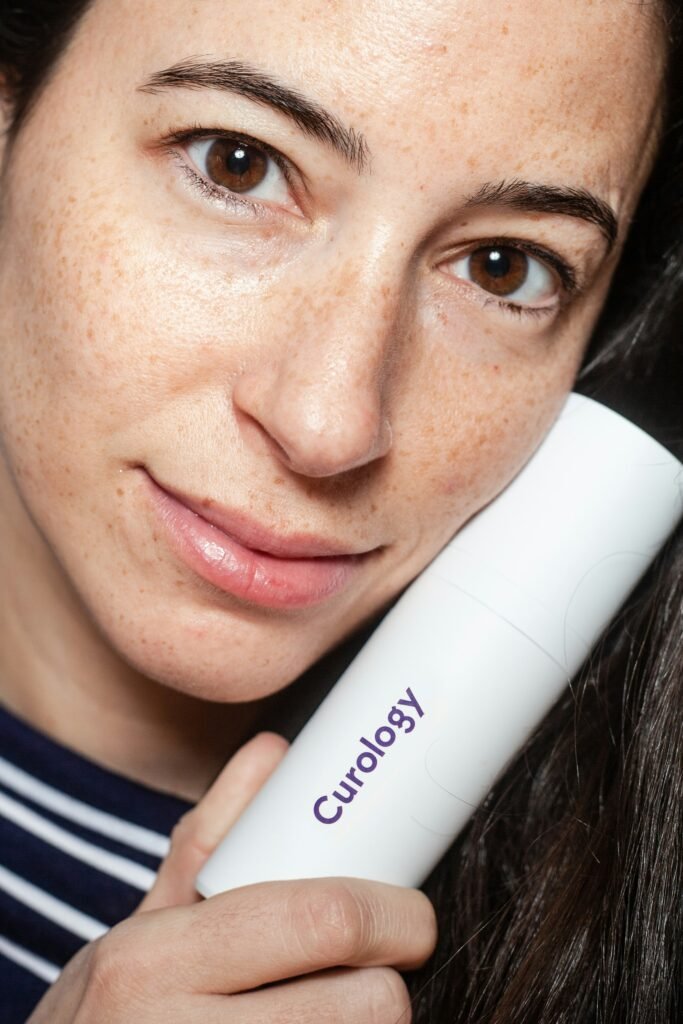
Hydration and Its Underrated Role in Skin Care
While it may seem obvious, proper hydration often goes overlooked when it comes to skincare. Water is essential for maintaining skin elasticity, promoting cell turnover, and flushing out toxins. It helps to keep the skin plump and hydrated, minimizing the appearance of fine lines and wrinkles.
In addition to drinking an adequate amount of water throughout the day, there are creative ways to increase your water intake. Infusing water with fruits or herbs can add a burst of flavor and encourage you to drink more. You can also incorporate hydrating foods like cucumbers, watermelon, and citrus fruits into your diet to boost your hydration levels.
Staying hydrated is a simple yet often underrated aspect of skincare. By prioritizing proper hydration, you can support your skin’s health and maintain a youthful appearance.
The Sugar-Skin Axis: Understanding Glycation
We all know that too much sugar can wreak havoc on our health, but did you know it can also accelerate skin aging? Glycation is a process that occurs when excess sugar molecules attach themselves to collagen and elastin in the skin, causing them to become stiff and less elastic. This leads to the formation of wrinkles and sagging skin.
To minimize the effects of glycation, reducing your sugar intake is crucial. Opt for natural sweeteners like honey or maple syrup, and be mindful of hidden sugars in processed foods and drinks.
Understanding the connection between sugar and skin aging can help you make better choices for both your health and your skin.

Customizing Your Anti-Aging Diet
No two people are the same, and neither are their skin’s needs. Customizing your anti-aging diet involves tailoring your food choices to your unique skin needs and lifestyle. Here are some useful guidelines to help you get started:
-
Identify your skin concerns: Take a moment to assess your skin and identify any specific concerns you have, such as dryness, dullness, or fine lines. This will guide your choices when selecting skin-friendly foods.
-
Eat a balanced diet: Aim to include a variety of fruits, vegetables, whole grains, lean proteins, and healthy fats in your daily meals. This will ensure you’re getting a wide range of nutrients that promote skin health.
-
Trial and error: Pay attention to how your skin responds to certain foods. Keep a food diary and note any changes in your skin after consuming specific foods. This will help you identify any potential triggers or foods that have a positive impact on your skin.
-
Seek professional advice: If you’re unsure how to customize your diet or have specific skin concerns, don’t hesitate to consult a dermatologist or a registered dietitian. They can provide personalized recommendations based on your individual needs.
By customizing your anti-aging diet, you can nurture your skin in a way that addresses your specific concerns and supports long-term skin health.
Conclusion: Your Plate, Your Palette for Youthful Skin
In conclusion, the impact of diet on skin aging cannot be overstated. By choosing the right foods, we can unlock the potential for youthful, radiant skin. Incorporating vitamins, minerals, antioxidants, and healthy fats into our diets can help combat the molecular mechanisms of skin aging and promote a more vibrant complexion.
As you navigate the world of skincare, think of your diet as a palette with which you can paint a more youthful canvas. Embrace colorful fruits and vegetables, nourishing superfoods, and hydrating choices. And remember, your plate holds the key to unlocking the fountain of youth within you.
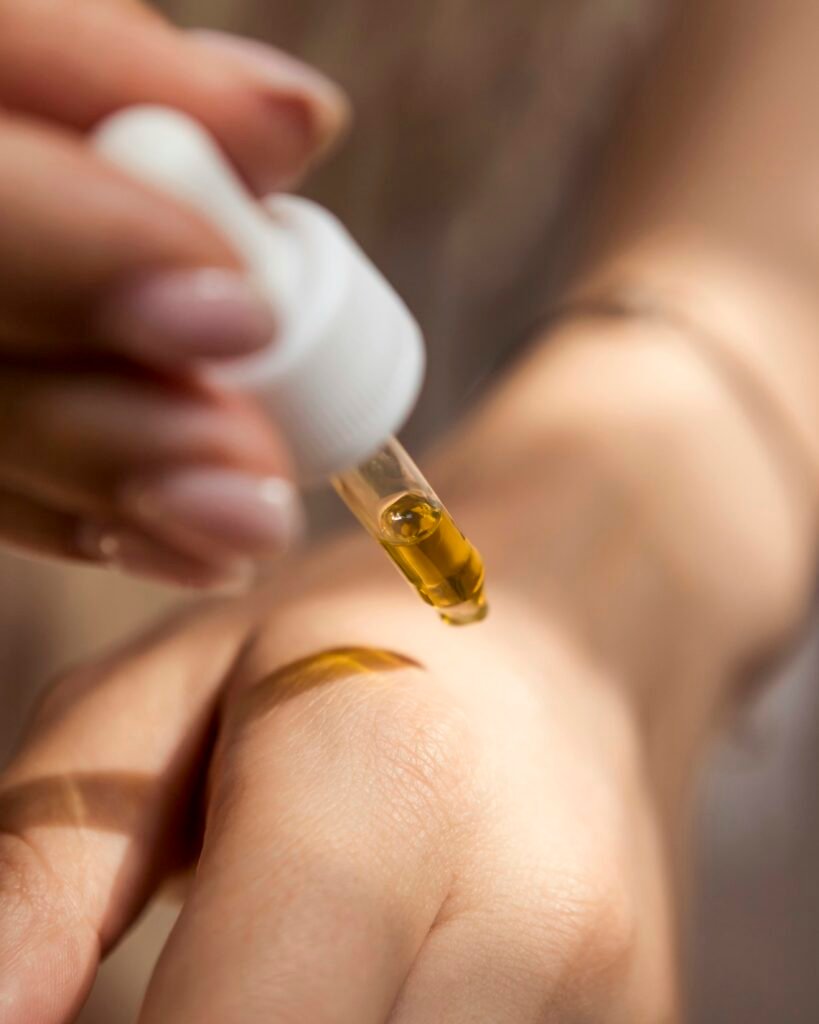

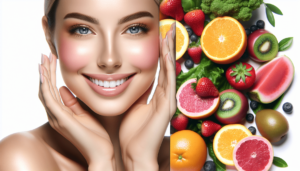






Thanks for sharing. I read many of your blog posts, cool, your blog is very good. https://www.binance.com/vi/register?ref=FIHEGIZ8